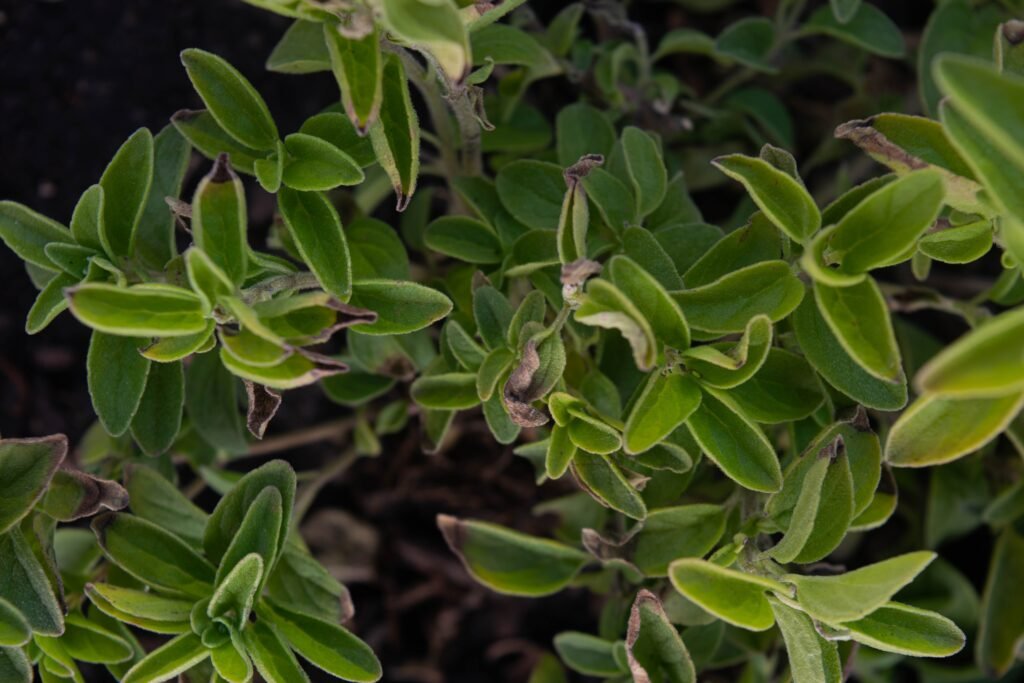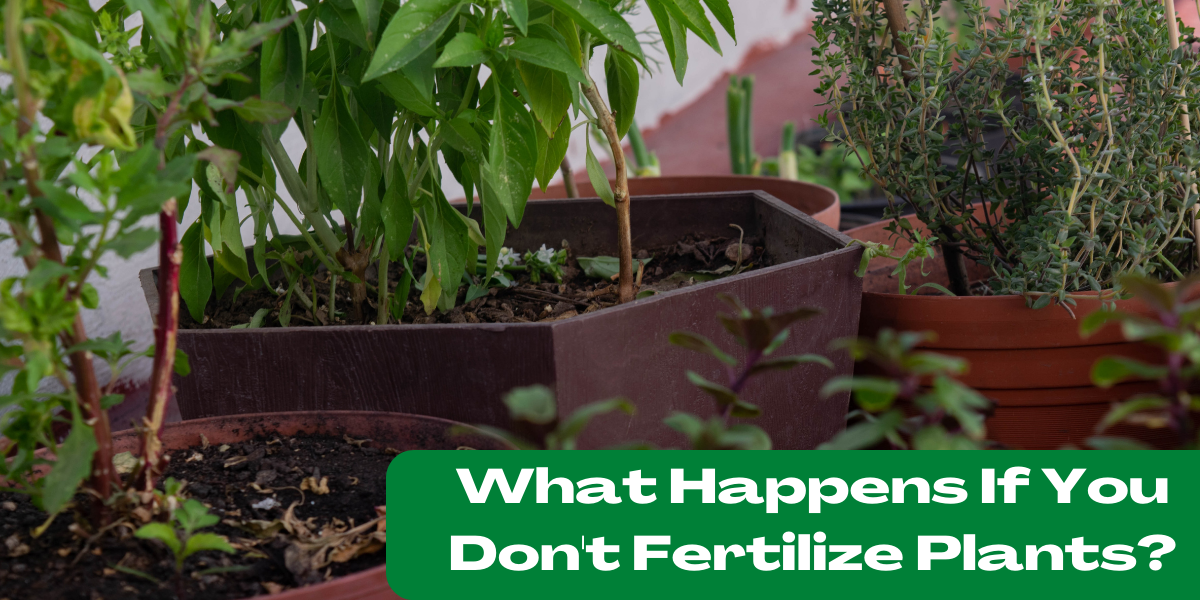Fertilizers are the major requirement of plants as it provides them with all the required nutrients and minerals.
Fruit trees, vegetables and flowers require a specific type of fertilizer to grow well, but if you don’t fertilize the plants, it will affect your plants. If you don’t fertilize plants, they will eventually die. The main reason why is that without fertilizer, the plant’s root system won’t grow, and it will stop taking up water and nutrients from the soil. Without these essential inputs, the plant will eventually wither and die.
What Happens if You don’t Fertilize Plants?

If you don’t fertilize plants, they will not grow as big or as healthy as they could. Fertilizer helps to add the nutrients that the plants need to grow. Without fertilizer, plants may not be able to get all of the nutrients that they need from the soil. Moreover, fertilizers offer a number of nutrients to plants. They can increase crop yields, improve the quality of crops, and help reduce the need for pesticides.
Fertilizers also help improve the soil’s ability to support plant growth, which can lead to better water retention and less erosion. So, if you don’t fertilize the plants, they won’t grow as big or as healthy as they could. Fertilizer helps to add the nutrients that the plants need to grow. Without fertilizer, plants may not be able to get all of the nutrients that they need from the soil.
Additionally, fertilizers can help stimulate plant growth during the off-season, such as winter, leading to earlier harvests. So not adding fertilizers to your plants can lead to late-season harvests.
Fertilizing plants is important for their overall health and growth. Without the proper nutrients, plants may not reach their full potential in terms of size or yield. Fertilizer also helps plants better resist pests and diseases. There are many different types of fertilizers available, and it is important to choose the right one for your specific plants. Not all plants need to be fertilized every year, so be sure to read the label carefully. If you are unsure whether or not your plants need fertilizer, or which type to use, consult a gardening expert.
Advantages of Fertilizers
There are many advantages of using fertilizers in agriculture. The two main benefits are that fertilizers increase crop yields and improve the quality of crops.
Another benefit is that fertilizers help to build the soil. They add essential nutrients, like nitrogen and phosphorus, which help to improve the structure and fertility of the soil. This makes it easier for plants to grow and thrive.
Fertilizers also help to conserve water. When crops are grown in nutrient-rich soil, they require less water to thrive. This is because the plants do not have to expend as much energy growing their roots deep into the soil in search of nutrients. Fertilizers also help to reduce erosion, which is when soil is washed away by rain or wind. Fertilizers keep the soil in place, helping to protect it from being blown away or washed away.
How To Choose the Right Fertilizers for Plants?

When it comes to fertilizing plants, there are a lot of options to choose from. But how do you know which fertilizer is right for your plants? Here are a few tips on how to choose the right fertilizer for your plants:
First, you need to determine what kind of plants you have. Different plants require different types of fertilizers. For example, vegetables need nitrogen-rich fertilizers, while flowers prefer phosphorus-rich fertilizers.
Second, you need to consider the type of soil you have. Some soils are already rich in nutrients, so you may not need to add any additional fertilizer. Other soils may be low in certain nutrients, so you will need to add a specific type of fertilizer that will correct the imbalance.
Third, you need to decide what kind of results you want to achieve. If you want to increase the number of flowers, then you will need to use a fertilizer that contains nitrogen. If you want the flowers to be more beautiful and healthy, then you may want to use a fertilizer with phosphorus. Or you may just want to provide a few nutrients to your garden such as nitrogen, phosphorous and potassium. If you put a little effort into choosing the right fertilizer for your garden, then it should be easy to get the desired results.
How Much Fertilizers Should I Use for My Plants?
When it comes to fertilizers, a little bit of knowledge can go a long way. Too much fertilizer can damage plants, while not enough can lead to anaemic growth and poor yields. How do you know how much fertilizer to use? The answer depends on the type of fertilizer and the plant you are fertilizing.
Nitrogen is one of the primary nutrients in most fertilizers. It is essential for leafy green plants, such as lettuce, spinach, and cabbage. A general guideline for nitrogen is 1 pound per 1,000 square feet. For vegetables like tomatoes or peppers, which have a higher demand for nitrogen, you can increase the amount to 2 pounds per 1,000 square feet.
If you are using a balanced fertilizer that contains both nitrogen and phosphorous (the other primary nutrient), then use half the recommended amount of nitrogen.
Can Plants Survive Without Fertilizer?
A lot of people seem to think that plants can’t grow or survive without the help of fertilizer. But the truth is, plants can actually get along just fine without it – as long as they have access to other sources of nutrients.
Fertilizer is simply a substance that helps improve the quality and quantity of crops. It contains essential nutrients like nitrogen, phosphorus, and potassium, which help promote plant growth. Fertilizer is often used on crops to make up for the lack of these nutrients in the soil.
But not all plants need fertilizer to grow well. In fact, some plants – like legumes and clover – actually fix nitrogen from the air and add it to the soil themselves. And many plants can get their essential nutrients from compost or organic matter in the soil.
Do Plants Grow Better with Fertilizer or Without?
Plants can grow without fertilizers but will grow better with them. Fertilizers add nutrients to the soil that help plants grow. Nitrogen, phosphorus, and potassium are the three main nutrients in fertilizers. Plants need all three of these nutrients to grow well.
Some plants can grow in nutrient-poor soils, but most plants will perform better if they have access to fertilizer. If you are growing vegetables or flowers, it is a good idea to use fertilizer. If you are growing a lawn, you may not need to use fertilizer because the grass will get all the nutrients it needs from the soil.
There are many different kinds of fertilizers available. You can buy organic or synthetic fertilizers. You can also buy liquid or solid fertilizers. It is important to read the label on the package before you buy a fertilizer.
When Should You Not Fertilize Plants?
The best time to fertilize plants is when they are actively growing; however, there are times when you should not fertilize them. One such time is at the end of their growing season. Fertilizing plants after they have stopped growing can actually do more harm than good.
When a plant stop growing, it is preparing for winter. The leaves will turn yellow and fall off, and the plant will go into a dormant state. Fertilizing it at this point will only stimulate new growth that the plant will not be able to support. This can lead to weak and spindly plants that are susceptible to disease and pests.
It is best to wait until spring to fertilize plants that have gone dormant. At that time, they will start growing again and will be able to take advantage of the nutrients in the fertilizer.
Conclusion
Plants need fertilizer to grow healthy and strong. Fertilizer provides plants with the nutrients they need to produce flowers, fruits, and vegetables. If you don’t fertilize your plants, they will not produce as much fruit or vegetables, and may eventually die. Fertilize your plants today and enjoy the benefits of a healthy garden!

